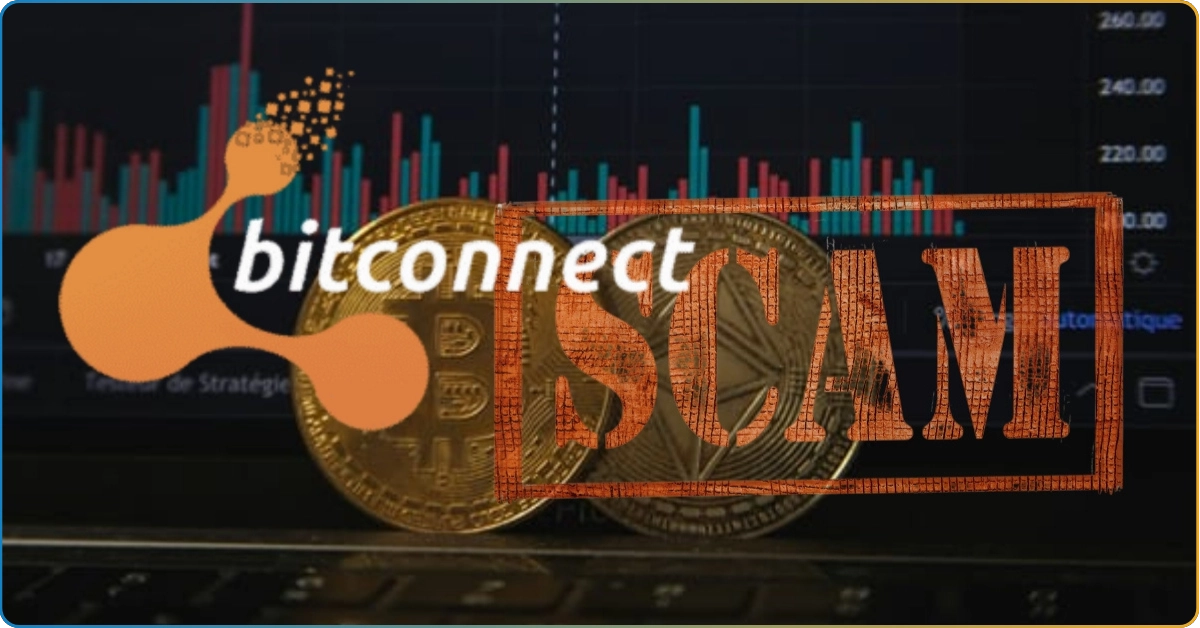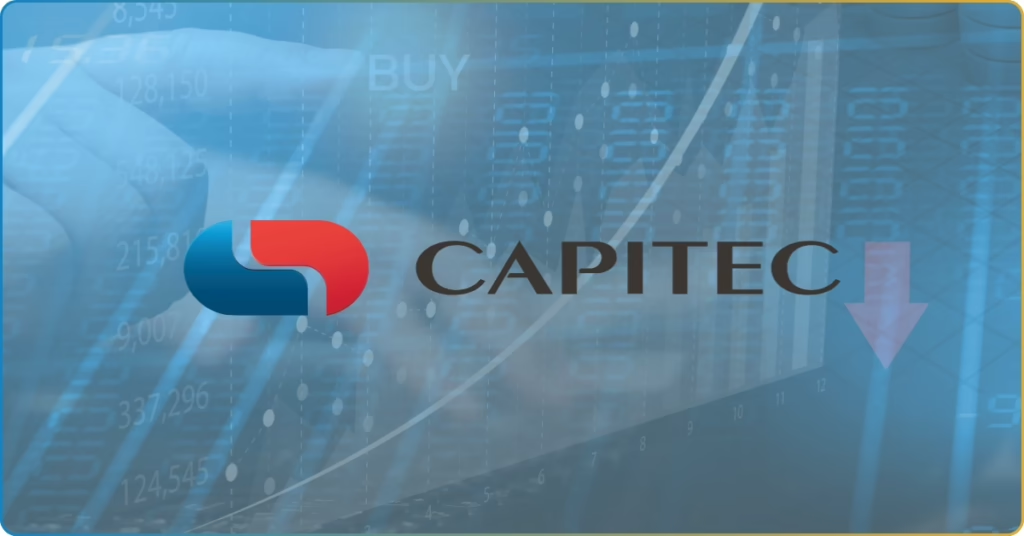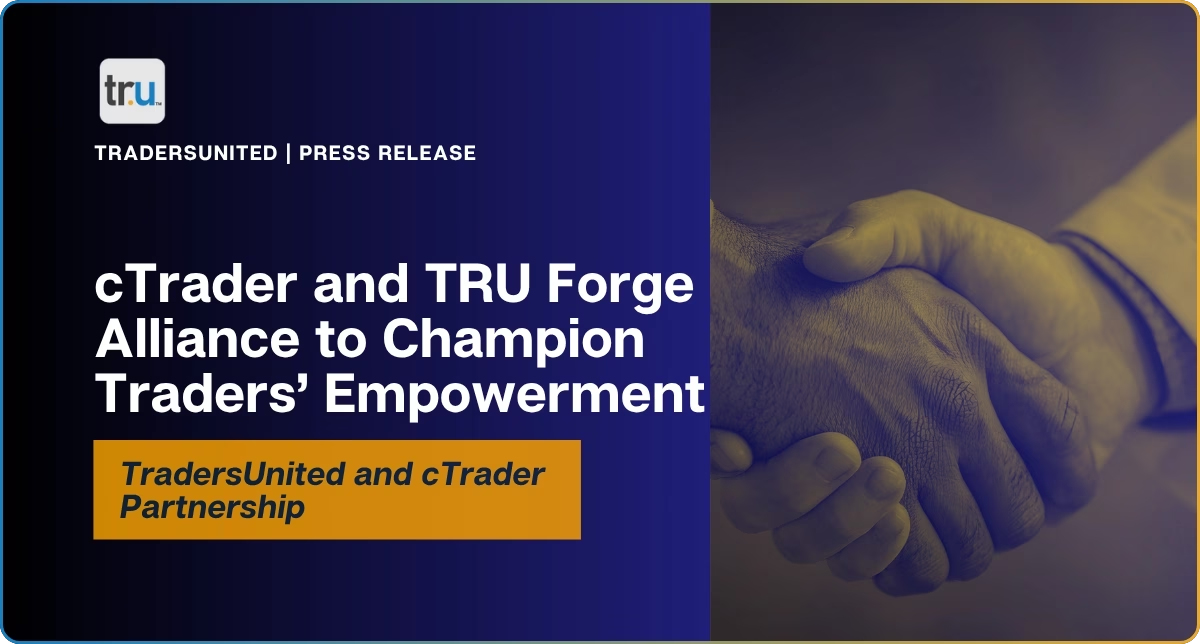The BitConnect scheme is believed to be the biggest cryptocurrency fraud to have ever been charged, defrauding over $2.4 billion from unsuspecting investors.
According to reports, Satish Kumbhani and Glenn Arcaro orchestrated what is known to be a “textbook” Ponzi scheme.
Read this TRU Insight to learn what happened to BitConnect, how the fraudulent scheme worked, and how the justice system addressed the Ponzi scheme after its two-year operation ceased in 2018.
The BitConnect Ponzi Scheme at a Glance
BitConnect was purportedly an open-source cryptocurrency serving as the native token of the now-infamous Ponzi scheme.
BCC launched shortly after the high-yield investment program in 2016. Its goal was to serve as a means by which BitConnect users could unknowingly participate in the scheme by investing and receiving payouts.
At this point, you might wonder: “How long did BitConnect last?” — Well, the Ponzi scheme lasted almost two years (2016–2018). During that time, it achieved an all-time high of $471 in December 2017.
Thereafter, legal problems arose when BitConnect’s organizers exited the program in 2018. This left investors with no funds, and the BitConnect price plummeted to zero, where it has remained since.
At its peak, BCC’s market cap was $2.5 billion. Estimates vary based on how much its founders earned when it shut down soon afterwards.
Who Organized the BCC Ponzi Scheme?
As with any Ponzi scheme, the real identities of BitConnect’s founders and developers remain uncertain. However, several names were linked to the scheme as part of the legal fallout of BCC.
Satish Kumbhani
Among the known figures of the Ponzi scheme are Indian citizens Mahendra Chaudhari, Satish Kumbhani, and Divyesh Darji.
Satish Kumbhani, in particular, was indicted for his central role in the multibillion-dollar cryptocurrency fraud. According to the report published by the Internal Revenue Service (IRS), the founder of BitConnect remains a fugitive from justice.
Glenn Arcaro
Glenn Arcaro, known as the director and main promoter of Bitconnect based in the U.S., is one of the confirmed leaders of the investment scheme.
In the same IRS report, Arcaro pleaded guilty in September 2021 and admitted to fraudulently marketing the BCC coin.
Related: Finfluencer in 2025: Can You Trust Them?
John Bigatton
By October 2020, an Australian named John Bigatton was introduced as another alleged promoter of BitConnect. Charges were reportedly brought against him for offering unlicensed financial services, in addition to five further counts relating to his involvement in the scheme.
Besides these charges, Bigatton’s wife disappeared several months following the fallout of BitConnect.
Carlos Matos
Perhaps the best-known individual linked to BitConnect is Carlos Matos. Although he was not part of the development, he engaged in public relations (PR) activities on behalf of others involved in the project.
According to Matos, however, he was not aware that BitConnect was a Ponzi scheme. He added that he also lost a total of $25,610 as a result of investing in BCC.
How the BitConnect Scam Unravelled
BitConnect misled investors from February 2016 to January 2018 through false advertisements.
The organizers promoted its platform as being able to generate significant profits by trading on volatile cryptocurrency exchange markets. They also falsely guaranteed monthly returns of up to 40% conducting such trades.
Conspirators, along with Kumbhani and Arcaro, conducted unregistered and fraudulent offerings and sales of securities in the form of fake investments through BitConnect’s Lending Program.
As a result, investors would send Bitcoins to BitConnect to buy an equivalent value of the BCC coin in return for interest payments.
Since BCC was a PoS cryptocurrency token, investors committed their private capital (aka stakes) to the enterprise in the form of BCC’s native tokens.
However, later investigations into BitConnect revealed that BitConnect’s operations do not align with those of a traditional trading platform. Instead, the platform uses money from new investors to pay previous investors. That’s the textbook characteristics of a Ponzi scheme—robbing Peter to pay Paul.
Based on our experts’ findings, BCC did not use market trading. Instead, it transferred investment funds into digital wallets managed by Kumbhani and his co-conspirators. Funds were also sent to international cryptocurrency exchanges for their own benefit.
Based on our experts’ findings, Kumbhani and his partners also manipulated the price of BCC tokens to create a false impression of “legitimate” high market demand.
After numerous regulatory investigations and orders, Kumbhani shut down the lending program in 2017 and then closed BitConnect in 2018.
The Promoted BCC Crypto Mechanism
BitConnect promoted itself as a means of addressing real-world financial problems using cryptocurrency. According to its promoters, BCC evades traditional banking systems to connect individuals with accessible financial solutions.
In contrast to the proof-of-work (PoW) system used by major cryptocurrencies, BCC employs the proof-of-stake (PoS) system. It served as a token with a hypothetical maximum supply of 28 million BCC.
Of this amount, 2.6 million BCC were planned to come from mining, while the rest would come from PoS staking activities from network participants.
The scheme lured millions of investors by employing more altruistic arguments, similar to those adopted by proponents of more legitimate cryptocurrencies, such as Bitcoin. As a result, they built a market cap that topped $2.5 billion in late 2017.
The Masked BitConnect Scam Operation
BCC’s unique selling point was non-existent as its foundation was similar to that of pyramid schemes. To put this into perspective, an investor would need to provide Bitcoin on the basis that the interest would be worth the effort almost immediately.
The program also promised investors to earn dividends on top of its already high payouts by signing up other users.
Beginning with a value of near zero, BCC reached $471 in December 2017. But after all the founders exited two months later in 2018, the token was practically worth nothing once again.
When it collapsed in February 2018, Bitconnect earned the dubious title of being one of the largest cryptocurrency scams worldwide. It was likened to PlusToken and OneCoin in terms of illicit gains.
Official information about the BCC token is no longer available, as BitConnect’s website has been offline for an extended period.
The Aftermath of the BitConnect Ponzi Scheme
Our experts looked into several updates from news reports and press releases from the Department of Justice regarding restitution for victims of the BitConnect scheme.
They also investigated what occurred not long before the Ponzi scheme shut down its operations.
Here is what our experts found:
Public Accusations
Leading up to the founders’ exit, several prominent figures in the cryptocurrency community accused BitConnect of operating a Ponzi scheme. Among these figures is Ethereum founder Vitalik Buterin.
In November 2017, the British Registrar of Companies issued a strike-off notice to BitConnect. Following that, in January 2018, Texas and North Carolina issued cease-and-desist orders for BCC’s lack of transparency, unregistered securities, and misleading advertisements.
$17 Million Compensation
A federal judge from San Diego, California, ordered Glenn Arcaco to pay $17,646,801 in restitution to around 800 victims from over 40 countries. In September 2022, Arcaro was sentenced to 38 months in prison.
Multiple SEC Charges
In February 2022, Kumbhani was indicted by the U.S. Securities and Exchange Commission (SEC) on multiple charges of fraud and conspiracy. Among these charges are:
- Conspiracy to commit wire fraud
- Wire fraud
- Operation of an unlicensed money transmitting business
- Conspiracy to commit commodity price manipulation
- Conspiracy to commit international money laundering
If all these charges are held, Kumbhani will face a maximum of 70 years in prison.
Selling $56 Million Worth of Cryptocurrency
The Department of Justice (DOJ) is offering to sell $56 million worth of cryptocurrency that it seized from Arcaro as a partial solution to the $2.4 billion scam.
Although this amount is minor compared to the funds that the fraudsters received, $56 million is recognized as the largest cryptocurrency recovery for victims to date.
How Can You Avoid This Type of Scam?
Without a doubt, cryptocurrency and securities scams are becoming increasingly prevalent in today’s economic environment.
While meteoric rises in coin values seem enticing, it’s important not to be lured by the false promise of high returns or the fear of missing out.
Fraudsters prey on unsuspecting individuals, creating conditions that make investing in their faulty platform appear attractive.
To help you steer away from these scams, our experts laid out some red flags of investment frauds that you should watch out for:
Unknown Cryptocurrency
Unproven mediums of exchange, such as the BitConnect Coin, are already clear warning signs.
Investors should always question the structure of investments and determine their actual importance. Staying vigilant about unusual intermediary transactions can help you spot this red flag.
Unqualified Advertisers
BCC used social media platforms to advertise to investors misleadingly. After investigations, however, the promoters were found to receive rewards for their promotions.
To help you avoid this warning sign, always look for licensed or qualified advertisers with investment credentials.
Lack of Whitepaper
Cryptocurrencies usually publish a whitepaper to help investors understand the technology and purpose behind the currency.
Since BitConnect has not issued one throughout its operations, it should help you understand why it raised suspicion among well-informed investors.
Learn more: Ultimate Guide to Find the Best Crypto to Invest in 2025 – TradersUnited
Anonymous Platform Origin and Regulatory Status
BitConnect was anonymously run and not registered with securities regulators in Canada and the U.S.
As an investor, you should always conduct due diligence in investigating whether the potential investment opportunity is duly registered with the necessary regulatory authorities.
Why Joining a Trading Community Can Help
Although the BitConnect Ponzi scheme is considered a “textbook” scam, several investors still fell victim due to a lack of awareness and necessary knowledge.
Our experts note that those who identified the scam before the organizers exited were those who possessed more than sufficient knowledge and expertise to recognize the red flags.
This scenario is a prime example of how education serves as the best form of prevention. Scammers prey on unsuspecting individuals, and to reduce your vulnerability, it’s essential to stay informed.
Joining a verified online trading community can help you kickstart your journey into a more informed investment and trading journey.
By joining CommuniTrade, you can benefit from expert insights from professional traders, learn from the experiences of others, and share your ideas to help other traders in a safe space.
CommuniTrade also provides members with exclusive educational tools and resources to help more traders learn about the fintech industry and avoid risks that can harm their investments.
With our experts’ help, you can stay informed and keep your investments secure.
FAQs
What is BitConnect?
Released in 2016, BitConnect was created to allow users to lend their coin’s value in exchange for investment payments.
The so-called “lending program” involved users trading Bitcoin for the BCC coin and locking in instantaneous value for a set period, earning interest daily.
Can you still buy and sell BitConnect today?
BCC is no longer a tradable asset on any exchanges due to its founders’ exit scam.
Is a Ponzi scheme similar to a pyramid scheme?
Ponzi and pyramid schemes are similar in that they are both forms of fraudulent investment scams. They differ in their operation and structure.
In a Ponzi scheme, the scammer acts as a “hub” for victims and interacts with them directly. A pyramid scheme, however, involves directly rewarding individuals who recruit additional participants.
Minimize Your Exposure to Scams Similar to BitConnect
CommuniTrade provides you with in-depth insights into effective strategies to combat fraud and prevent fraudulent activities.
Not only will you know the ins and outs of scam prevention, but you will also benefit from expert trading tools and unbiased educational materials created by professional traders in the market.
Combat investment and lending scams the right way. Join millions of traders worldwide and be part of CommuniTrade today!

















